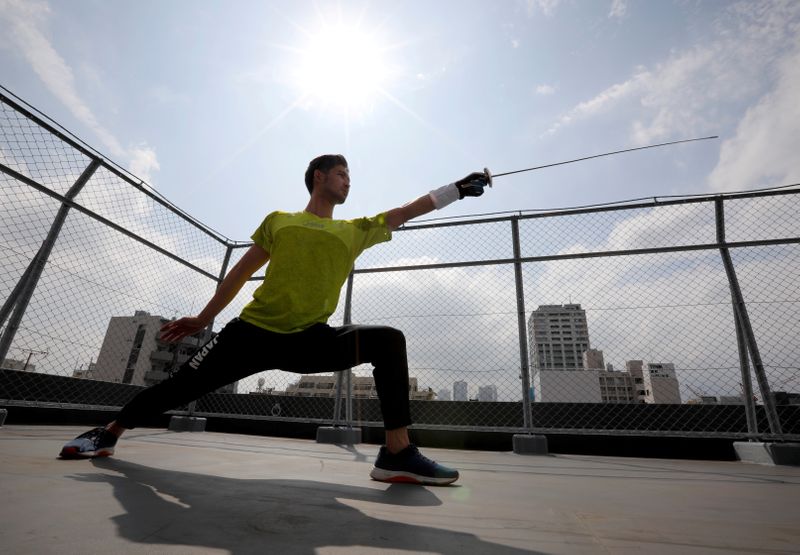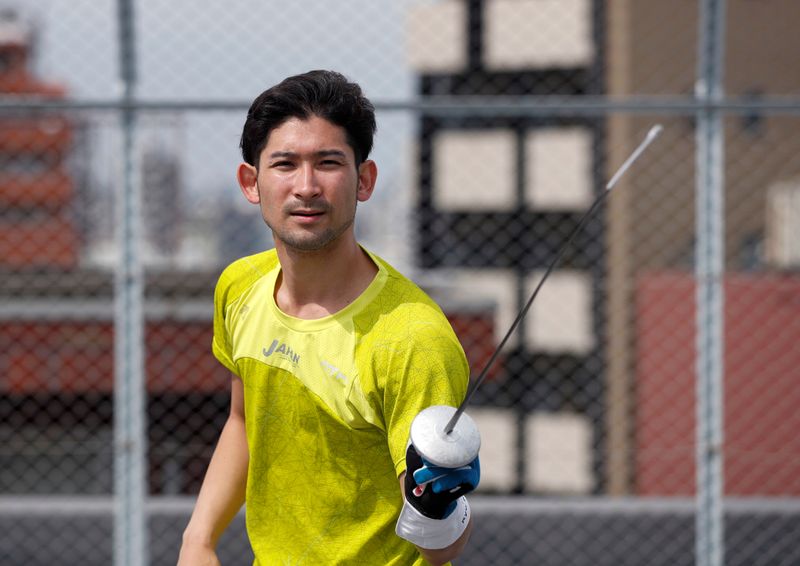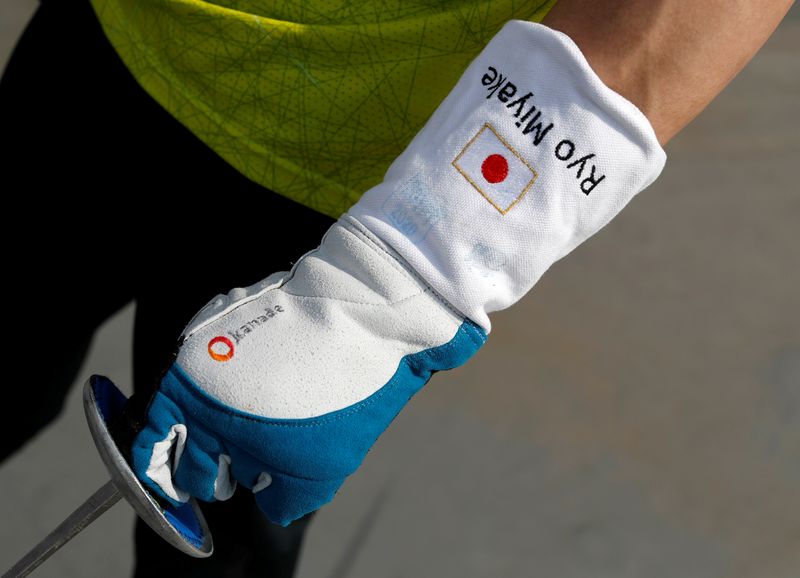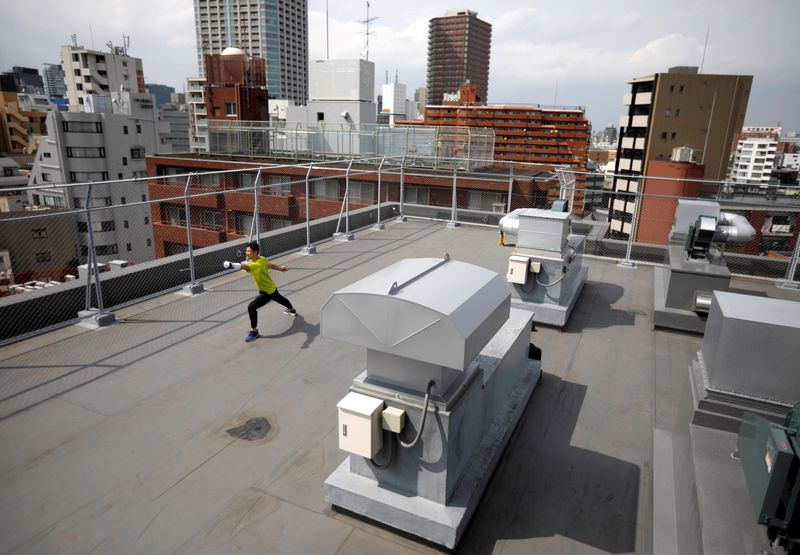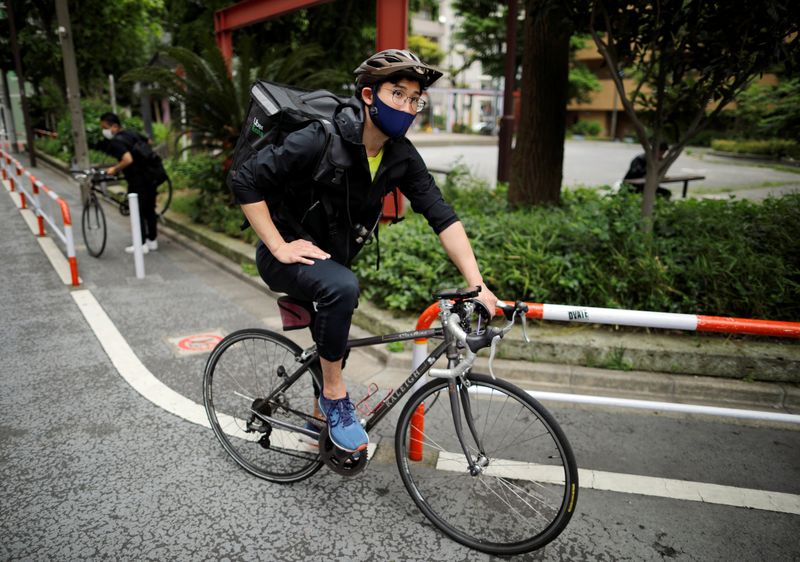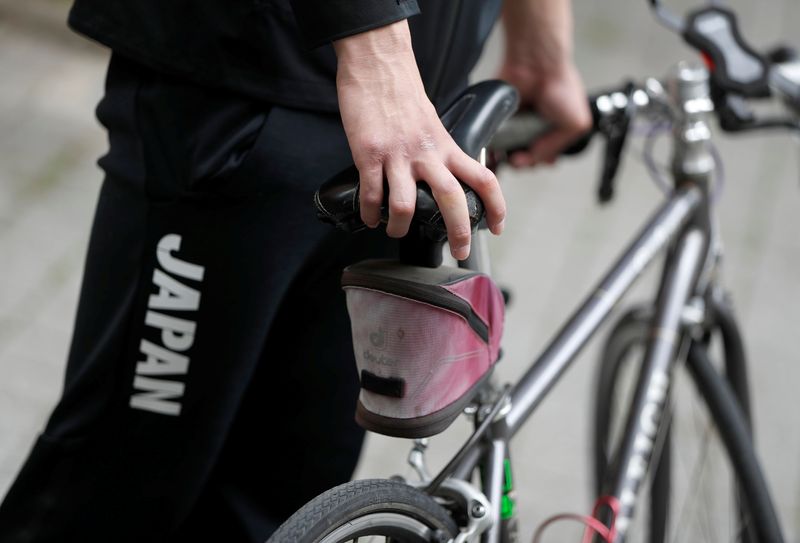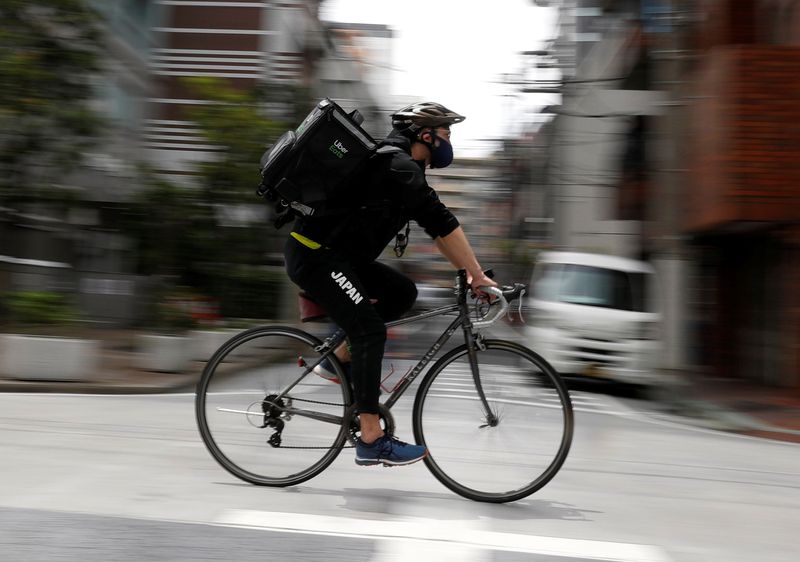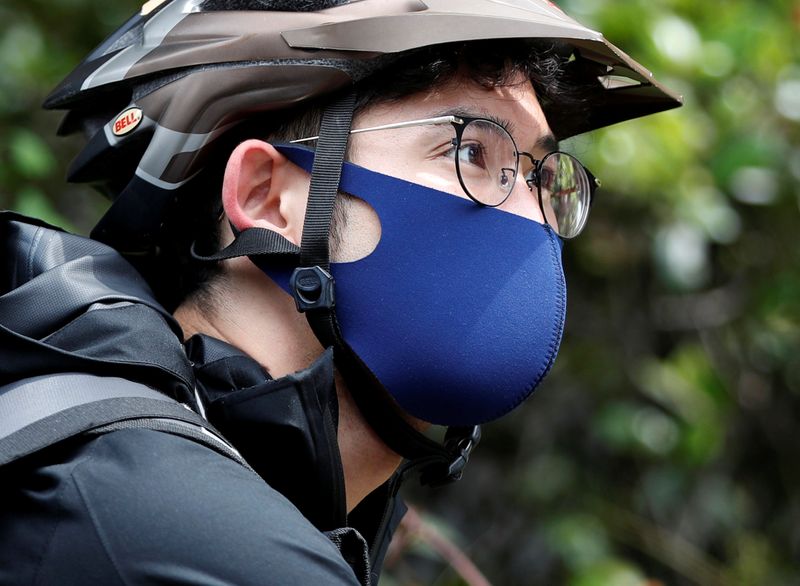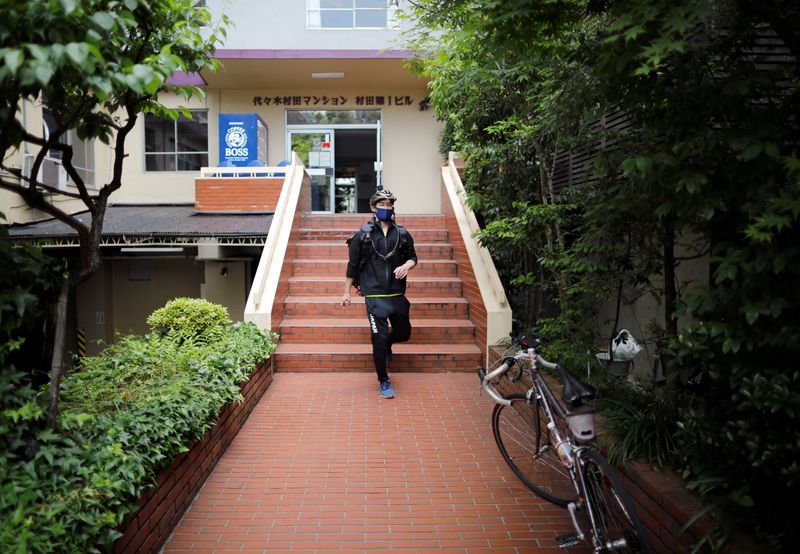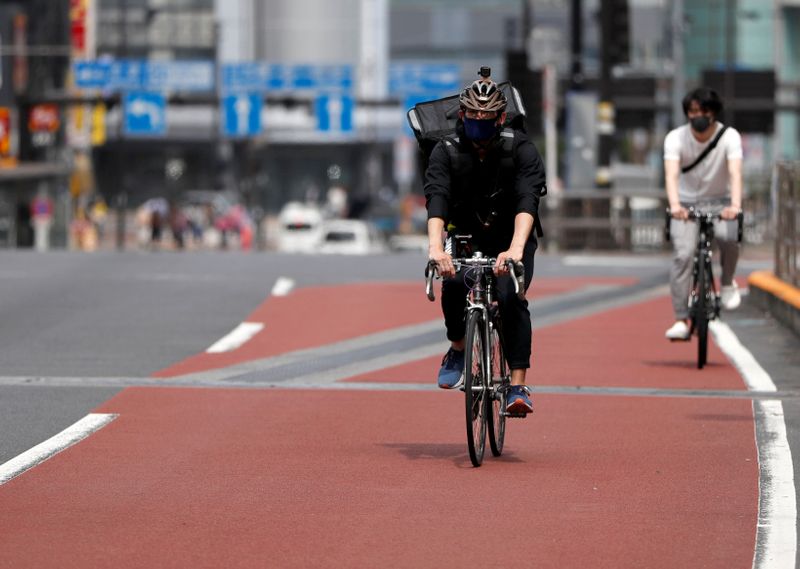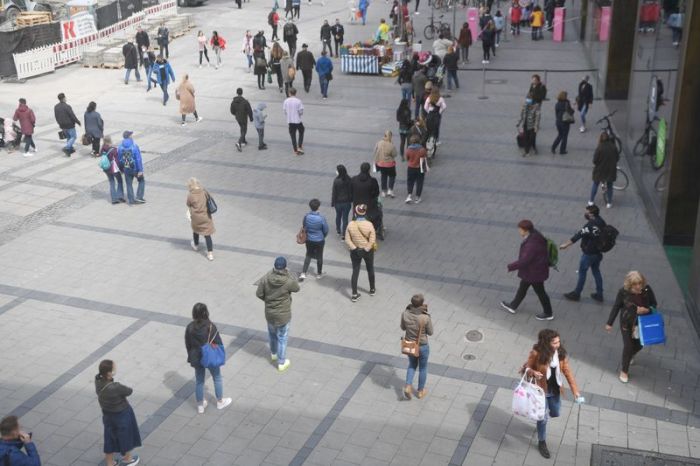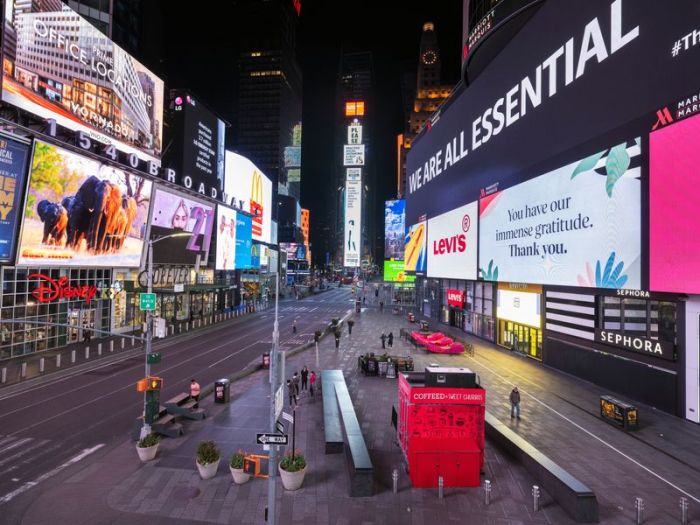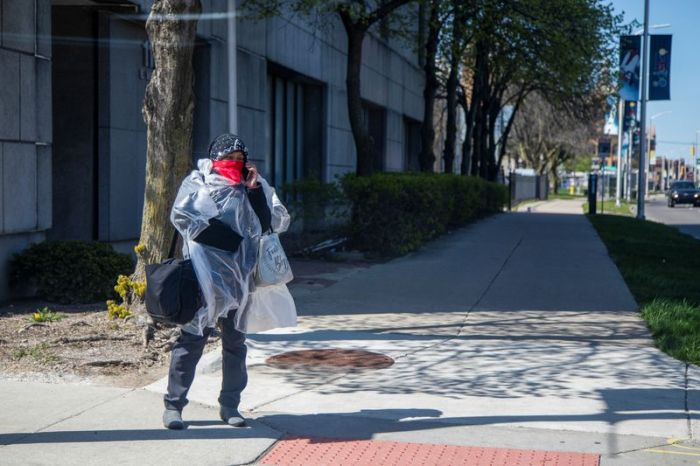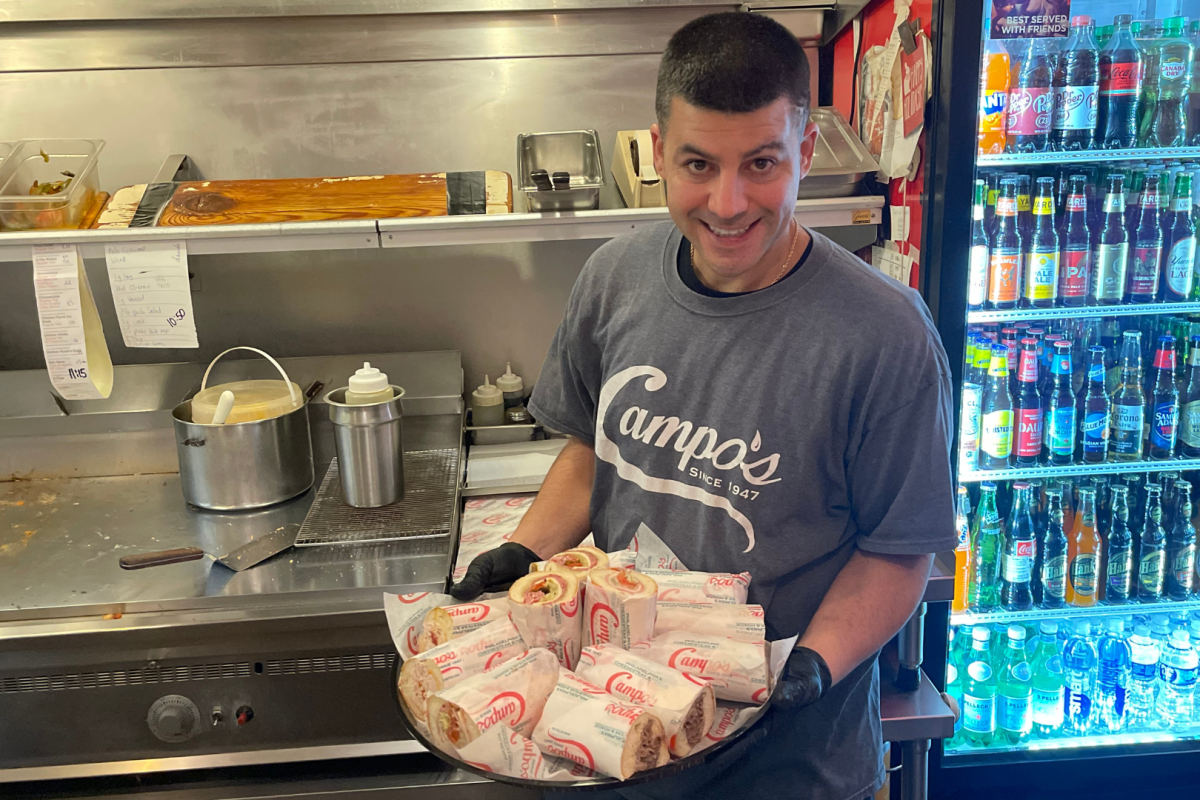TOKYO (Reuters) – With his Olympics preparations in tatters, Japanese fencer Ryo Miyake has begun delivering food for Uber Eats as a way to keep up his fitness and bring in a little extra cash during the enforced coronavirus lockdown.
In March, the International Olympic Committee and the Japanese government took the unprecedented decision to delay the Games, due to start this July, for a year due to the coronavirus outbreak.
Having won silver in the men’s team foil at London 2012, Miyake had a raft of sponsors backing him in the lead-up to the Games on home soil.
But with all competitions now cancelled for the foreseeable future and the Olympics pushed back a year, Miyake felt he couldn’t accept sponsorship money in good conscience.
“It is still unclear how and in what situation I will become an Olympian,” Miyake told Reuters on Tuesday.
“I thought it was a little impudent to receive support in such a situation, so I told them (sponsors) to hold (sponsorship) for the time being.”
With no access to a gym due to Japan’s coronavirus lockdown, Miyake said he was looking for a way to make money and maintain his fitness at the same time.
Delivering food for Uber Eats on his bicycle fits the bill, and Miyake said he enjoyed the flexibility provided by the app as well as being able to work up a sweat while on the job.
He only earns about 2,000 yen ($18.60) a day working for Uber Eats, but Miyake said that added to his savings this means he has enough to survive without sponsorship. He is also looking for other ways to earn money around his training regime.
“Now I am digging into my savings for a living, so I have to earn money by myself,” said Miyake, who has been delivering for the past two weeks.
“I also thought by doing Uber Eats delivery, it can prevent my physical strength from weakening.”
With demand for food delivery on the rise due to the coronavirus pandemic there is no shortage of delivery work on offer – there is also minimal contact with other people thanks to Uber Eats’ policy of leaving food outside people’s doors.
“The risk of getting infected with the coronavirus is low,” said Miyake.
“Although you might think you have a lot of contact with people because you deliver goods, as recommended by the application I put the food in front of people’s doors and there is no contact.”
“The only time I have contact is when I pick up food from the restaurant’s staff.”
Miyake, who was in the process of qualifying for the Olympics when the Games were postponed, doesn’t know when he will next be able to pick up a rapier and train with sparring partners.
“Fencing is a sport that doesn’t fit with the current situation because we can’t practise without having people gathered together,” he said.
“This is really regrettable.”
“I want to restart with a situation where everyone can train freely and without any concern.”
(Reporting by Jack Tarrant and Hideto Sakai; Editing by Hugh Lawson)

